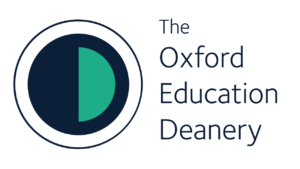The Project
This Deanery Digest is based on the following publication: Hamilton, C., & Murphy, V. (2023). Folk pedagogy? Investigating how and why UK early years and primary teachers use songs with young learners, Education 3-13, 52(8), 1488–1509. https://doi.org/10.1080/03004279.2023.2168132
What is this research about and why is it important?
It is difficult to imagine an early education setting without familiar childhood songs or nursery rhymes as the day’s soundtrack, or primary schools without children chanting times tables or singing in assembly. Teachers appear to use songs for lots of purposes other than for teaching and enjoying music, and in primary schools, the curricular subject of music is reported as being ‘squeezed out’ by core subjects such as literacy and maths.
This study aimed to find out more about teachers’ beliefs about using songs, so that future research on the topic can be steered towards the issues that matter most to teachers. We collected survey responses and conducted follow-up interviews to explore practitioners’ beliefs, practices, and experiences of using songs across the early years and primary age range. We hope that taking teachers’ concerns and beliefs as the starting point for designing research will make the research more useful for teachers to inform and support their classroom practice.
What did we do?
We conducted an online survey through social media and teaching networks, gathering 103 responses from UK early years (including childminders, and nursery, preschool or kindergarten practitioners), and primary school teachers spanning Reception to Year 6. The questionnaire asked six questions about how teachers use songs. 93% of the respondents were female, with 70% reporting more than ten years’ educational practice.
Seven volunteers (two male, five female), representing the full range of education phases among respondents to the questionnaire (from pre-school to Year 6) were interviewed to add richer and more detailed information to the questionnaire responses. The interviews were semi-structured, meaning that everyone was asked the same questions but could take the conversation to where their interests lay. This was to allow interviewees to explore their thoughts whilst also keeping on topic.
The survey data and the interview data were then brought together to understand what influences teachers’ choices when using songs, and how frequently they use them.
What did we find?
Early years and upper primary teachers said that they used songs differently when it came to managing behaviour, establishing classroom routines, and teaching social skills. However, they used songs in similar ways for teaching subject content and helping with language development. The survey results and interviews identified a similar pattern, as explored below.
- Regarding content, teachers across all age groups said they use songs to introduce concepts and topics in maths, literacy, history, science and geography, in age-appropriate ways. There was a strong feeling that songs fast-track new concepts into children’s long-term memory. For example, interviewees said that singing songs about mathematical shapes helps children remember the names of these shapes better than just telling them what they are called.
- Songs were also seen as being simple and easy ways to introduce new vocabulary, particularly for children at the very earliest stages of learning to read. Traditional songs were seen as richer sources of topic vocabulary than contemporary songs. KS2 teachers said that they used songs to introduce foreign language vocabulary, much like their early years colleagues. The idea that children are ‘sponges’ for new words introduced through songs came up several times. Teachers in all age phases said that they believed that songs get stuck in your head, which they felt helped children to remember new words.
- There was a sense that songs are part of the ‘fabric’ of early years, and form a natural part of the daily routines and rituals. This was much less common in the later primary years. One exception was upper primary languages teachers, who said that they used songs to welcome and say goodbye, and as a staple of the class routines in their lessons. This contrasted with generalist KS2 teachers who tended to use songs in a more ad-hoc way, for example when children need a rest from writing in the afternoon.
- Finally, for social development, songs are used for teaching turn-taking and listening skills in early years. KS1 and KS2 teachers talked less about the social aspects of using songs, but did report hearing children perform and share classroom songs informally in the playground, and more formally through performances to parents organised by the teachers.
- All teachers expressed a belief in the ‘power’ of songs.
What does it all mean anyway?
Whilst participants in this study were all volunteers, and therefore perhaps positively biased towards using songs for educational purposes, the findings suggest a clear strength of belief in songs as valuable teaching and learning tools.
However, this does not match with research evidence about the effects of using songs for teaching and learning (other than for teaching singing). In another study (see this Deanery Digest) we found that there is little high-quality research that supports the idea that songs do the things that these teachers believe that they do, such as supporting language development. The mismatch between teachers’ beliefs and research evidence provides a clear focus for further research. Teachers clearly feel very positive about the use of songs, and research that aims to find out if songs offer anything in addition to the enjoyment and fun they bring to the primary classroom would be a valuable endeavour.

